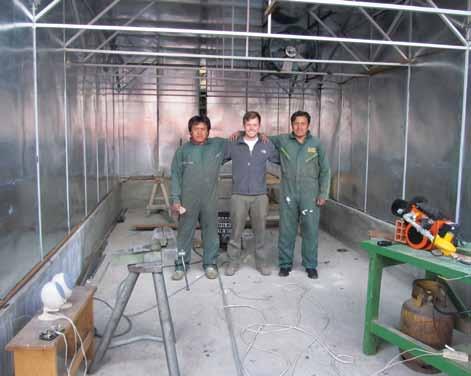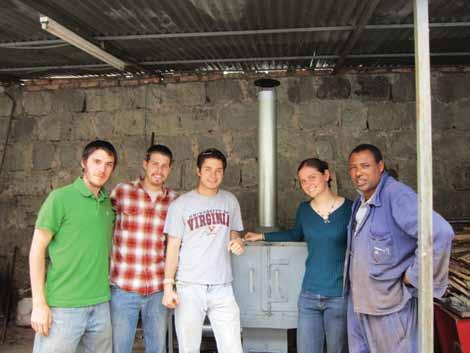
3 minute read
Sustainability on Campus: Teaching sustainable (and humanitarian) engineering
Janet Bednarek, Ph.D.
Professor of History, University of Dayton Dayton, Ohio President, PWHS Board of Trustees
Advertisement
lthough I teach in the Department of History, many of my students are engineering undergraduates, taking one of my history courses as part of their general education requirement. It is from them that I have been made aware of the degree to which many of the students studying engineering today have embraced the concept of sustainability. I will not argue that this is universal, but a sizable number are grappling with how to engineer more sustainable technologies and live more sustainable lifestyles. We have a sustainability club on campus and the members have been key players in prodding the University of Dayton to adopt more sustainable practices, including encouraging recycling, purchasing foodstuffs locally, and conducting frequent energy audits with the goal of cutting energy use. And not just students are involved in promoting sustainability as a number of the engineering faculty (as well as faculty members in other areas of the university) are also working to encourage more sustainable practices. One professor of mechanical and aerospace engineering, for example, not only teaches environmentally conscious design, he has also retrofitted his home near campus with solar panels and uses energy-efficient light bulbs throughout his house. And I’ve seen him walking to campus many mornings. Further, a number of my students over the last decade have participated in the ETHOS program at the University of Dayton. ETHOS stands for Engineers in Technical, Humanitarian Opportunities for Service-Learning and was founded by a group of UD students in 2001. Students participating in the ETHOS program travel to different countries throughout the world during the summer term. In each country, they explore how to use alternative, non-traditional technologies to improve the lives of the people who will use those technologies. The students work with local organizations focused on conducting appropriate technology, sustainable development and educational work. In recent years, with funding from the National Science Foundation, the students have been eligible for scholarships in the Sustainable Engineering Scholars Program. This program was created in response to predicted future fossil fuel and water shortages and the need to “engineer products, technology and services delivering a more sustainable energy supply and requiring less energy and environmental impact.” The program is designed to:
1. Engage students in facultymentored sustainable engineering curricular and extracurricular activities throughout all four years (or more if they coop) of their education;
2. Provide experiential learning opportunities either through

Solar water heater – Bihar, India
undergraduate research, cooperative education, industrysponsored design projects; and/ or through international ETHOS service-learning internships, all linking to sustainable engineering and innovation;
3. Provide a culminating sustainable innovation/ entrepreneurship experience oriented toward developing a new product/service;
4. Provide strong academic support structure and academic intervention support necessary for retention through calculus and early sciences, consistent with already quality academic support services;
5. Network students with industrial/governmental mentors, engineers and business people through a continuing seminar series focused upon sustainable engineering and innovation.
Last year, students in the ETHOS program traveled to Ecuador, Peru, Bolivia, Guatemala, Nicaragua, Cameroon and Pakistan. In these developing areas of the world, the students engaged in a variety of projects including the development of an efficient, low-smoke, woodburning stove, as well as solar cookers and a water supply-filtration system. One student also helped install solar panels on homes in a remote area of Pakistan.
Many of these students—especially the civil engineers—will be the public works professionals of the next generation. If what I see at the University of Dayton is any indication, these students will bring their embrace of the value of sustainability as well as many important new skills to the public works arena.

Rocket stove-oven – Ethiopia
Janet Bednarek can be reached at (937) 229-2848 or janet.bednarek@notes. udayton.edu.











